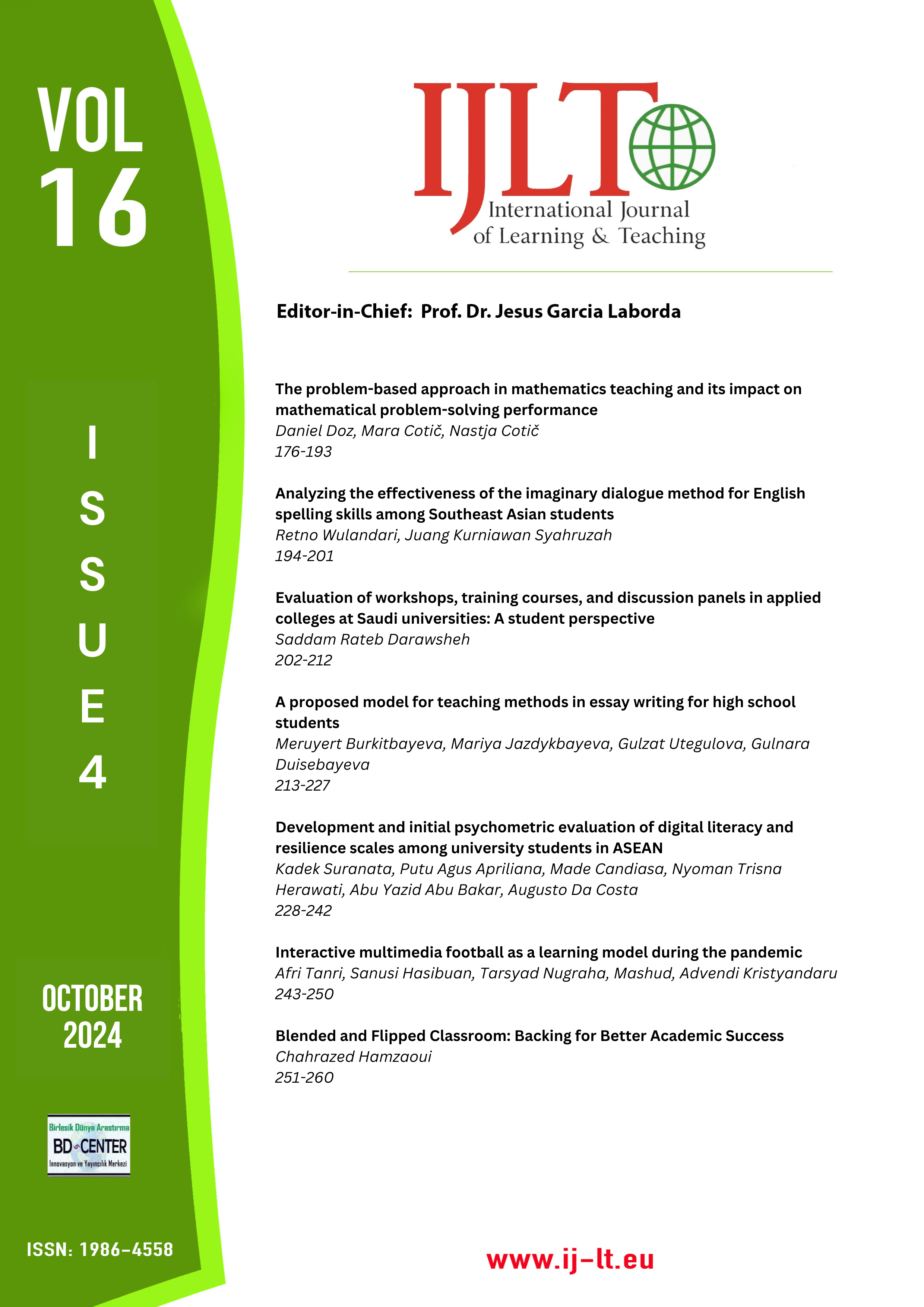Development and initial psychometric evaluation of digital literacy and resilience scales among university students in ASEAN
Main Article Content
Abstract
The transition to Society 5.0 requires all individuals, including university students, to adapt to digitalization and information technology. Ensuring students develop the necessary competencies for digital education is essential to prevent them from being left behind. While studies on digital literacy and efficiency in the context of Society 5.0 exist, research focusing specifically on Southeast Asian university students remains limited. This study aims to develop and validate a digital literacy and digital resilience scale for students in Indonesia, Malaysia, and Timor Leste. The initial instrument comprised 45 items measuring five dimensions of digital literacy, which include information and data literacy, communication and collaboration, digital content creation, security, and problem-solving. It also included 29 items assessing four factors of digital resilience, which are knowing, understanding, learning, and recovery. A total of 864 students participated, with 34 percent male and 66 percent female. Psychometric testing involved exploratory factor analysis using JASP 0.16.3.0 and confirmatory factor analysis. The final scale consists of 27 valid and reliable items, with 16 measuring digital literacy and 11 measuring digital resilience. Confirmatory factor analysis results indicate that the models are well-fitted. This instrument provides a valuable tool for assessing students' digital literacy and resilience, supporting efforts to enhance digital competencies in higher education.
Keywords: ASEAN; digital literacy; digital resilience; students
Downloads
Article Details

This work is licensed under a Creative Commons Attribution-NonCommercial-NoDerivatives 4.0 International License.
Authors who publish with this journal agree to the following terms:
- Authors retain copyright and grant the journal right of first publication with the work simultaneously licensed under a Creative Commons Attribution License that allows others to share the work with an acknowledgement of the work's authorship and initial publication in this journal.
- Authors are able to enter into separate, additional contractual arrangements for the non-exclusive distribution of the journal's published version of the work (e.g., post it to an institutional repository or publish it in a book), with an acknowledgement of its initial publication in this journal.
- Authors are permitted and encouraged to post their work online (e.g., in institutional repositories or on their website) prior to and during the submission process, as it can lead to productive exchanges, as well as earlier and greater citation of published work (SeeThe Effect of Open Access).
